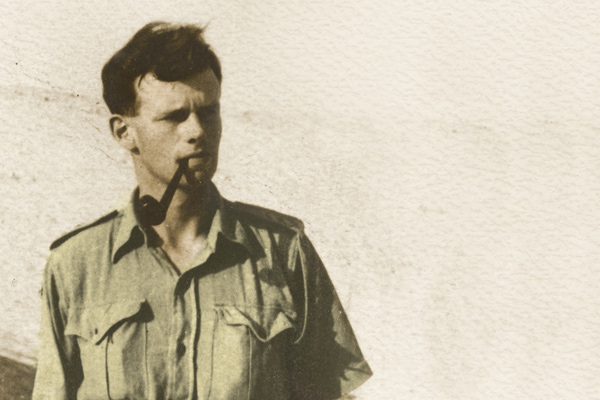It is very possible that unless you are a Bulgarian or a Wykehamist or an SOE buff or ideally all three you will not have heard of Frank Thompson. Somewhere outside Sofia there is a railway station and a kinder-gartern named after him, but apart from one touching but derivative poem, printed in the Times on VJ Day 1945 and regularly anthologised since, Peter Conradi’s ‘very English hero’ is hardly known here at all.
William Frank Thompson was born in Darjeeling in 1920, the son of a Methodist missionary and the grandson and great-grandson on his mother’s side of a formidable dynasty of American Presbyterian missionaries to Syria. When Frank was just three his father left India to take up a teaching post in Bengali at Oxford, and the young Frank grew up in the Islip of Robert Graves and among the poets and vegetarians of Boars Hill, the precociously gifted and privileged child of a privileged world that was about as remote from his narrow Methodist background as it is possible to imagine.
The Dragon School, Winchester, New College and SOE followed — as English heroes go, you don’t get much more English than that — and through his father Edward, Frank was also heir to an English tradition of a very different sort. By the time that his father went out to India the war had already shaken his Methodist faith, but like so many men of his generation who had abandoned the theological certainties of Victorian dissent, he never lost the emotional need of a ‘religion’ or cause to which he could bring the same high seriousness and evangelical energy.
It was their father’s crusading seriousness in the cause of India that Frank and, more belligerently, his younger brother, Palmer — the great historian of the English working classes, ‘E.P.’ — inherited, and given the time and place in which they grew up it was almost inevitable that it should turn them both into communists. As a student and soldier Frank was always too much of an individualist and romantic to make a very doctrinaire comrade, but everything that was best and most idealistic in him, as well as a lot that was perversely naive, kept him loyal to the cause, and he died as he had lived, a brave, chivalrous champion of an Oxford generation whose lives had been shaped by the Spanish Civil War and Munich.
The tale of his short life and death, brutally murdered while fighting alongside Bulgarian partisans in a hopelessly botched SOE operation in 1944, is precisely the kind of history that Ronald Blythe would have told in 20 dazzling pages, but that is not Peter Conradi’s way. If, though, his style is more Dresden than surgical strike he has painted a compelling portrait of a generation that is slipping from memory into history as irreversibly as that which went to war in 1914.
He has told a good slice of Thompson’s story before in his biography of Iris Murdoch, with whom Thompson fell in love at Oxford and who had rather more to do with his conversion to Marxism than Marx himself. And while Conradi can overkill with the detail — it can sometimes feel as if one is looking at history in high definition — these are minor drawbacks in a generous and perceptive rescue of a personality and talent that Thompson’s friends could never forget.
Quite what he would have done with that talent, though, is hard to say. His letters and diaries can be brilliant — Waugh would have been proud of his account of blackberrying with his troops under fire on the Sicilian beaches — but if the memorial volume produced by his family after the war is any guide, he was no poet, and invoking Keith Douglas here only rams that home.
Perhaps, in fact, Thompson’s sub-Keatsian preoccupation with his own death was something more than adolescent self-dramatisation. Perhaps, as he and his friends suspected, he was not made for ‘the long littleness of life’; but Conradi’s moving portrait makes one wish that he and we had at least had the chance of finding out.






Comments